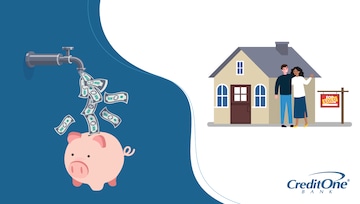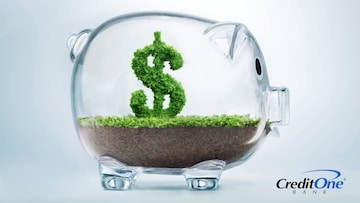
What Is a High-Yield Savings Account and How Does It Work?
April 04, 2024
A high-yield savings account could be a great tool for growing your money. Here’s how it works to help you earn a better return.

In this article:
- Introduction
- What Is a High-Yield Savings Account?
- How Do High-Yield Savings Accounts Work?
- Does a High-Yield Savings Account Work the Same as a Traditional Savings Account?
- What To Look for in a High-Yield Savings Account
- How To Open a High-Yield Savings Account
- How To Calculate Interest on a High-Yield Savings Account
- Do I Get Taxed on a High-Yield Savings Account?
- Is a High-Yield Savings Account Safe?
- Can I Write Checks on a High-Yield Savings Account?
- Benefits of High-Yield Savings Accounts
- Is a High-Yield Savings Account Worth It?
- Bottom Line
Introduction
Looking for somewhere to put your money and earn a higher interest rate than a traditional savings account? Or perhaps you’re between investments and want a secure place to keep your funds while plotting your next investment move. Or maybe you’re nearing retirement and want to move your money out of higher-risk investments into a safer, more liquid account.
Well, if any of these apply to you, a high-yield savings account may be something you want to consider.
What Is a High-Yield Savings Account?
The name pretty much says it — a high-yield savings account is a savings account that yields a higher rate of return than a standard savings account. In fact, a high-yield savings account may yield an annual percentage yield (APY) anywhere from 10 to 12 times higher than a traditional savings account, and sometimes even more. The higher the APY, the bigger the return.
However, your stated APY is never set in stone. Interest rates go up and down based on the Federal Reserve’s Federal funds rate, which sets the benchmark that financial institutions use to determine their own rates.
Often you can get higher APYs from online-only banks because they don’t have the overhead that brick-and-mortar financial institutions do. But every bank, physical or virtual, offers rates that make sense to their operation and profitability. So it’s always best to shop around.
How Do High-Yield Savings Accounts Work?
Most high-yield savings accounts pay compound interest, which earns you interest on the interest as well as the principal deposit. The more often the interest is compounded — known as the compounding frequency — the faster your money grows. Some accounts compound daily, while others might compound monthly or yearly.
You deposit an initial amount when you open a high-yield savings account. Some have minimum deposits required and others don’t. Then you leave your money there to grow, adding to it as you can.
There are generally no penalties if you wish to withdraw your funds, like for purchasing something or making an investment. But you’ll net the highest return if you can leave your money and keep regularly depositing more. In fact, many people use a high-yield savings account to build an emergency fund that they can access when needed.
A great strategy is to have a portion of your paycheck automatically transferred to your high-yield savings account so it can grow without thinking about it.
Does a High-Yield Savings Account Work the Same as a Traditional Savings Account?
A high-yield savings account works in a similar way to a traditional savings account. You deposit your money and earn compound interest on your balance. But a high-yield savings account offers a greater rate of return than a traditional savings account. And some high-yield savings accounts require a larger minimum deposit or ongoing minimum balance.
If you don’t keep that minimum balance from month to month, some savings accounts charge a maintenance fee. But typically that requirement on a high-yield savings account, and the fee if you don’t hit the target, will be higher than with a traditional account. And a jumbo high-yield savings account requires an even higher minimum deposit, often $25,000 to $100,000.
What To Look for in a High-Yield Savings Account
When it comes to the specifics of a high-yield savings account, look at the key factors that can help you make a decision.
Interest rate
The advertised APY is one of the first specs you’ll see, and one of the most important. Interest rates vary a lot, so look for the highest you can get among your top options. If it’s a limited-time promotional rate, keep that in mind as well.
Minimum deposit
The initial requirement to open an account can be anywhere from a few dollars (or “no minimum”) to hundreds, thousands, or even tens of thousands of dollars. Make sure you can easily and comfortably make this minimum deposit before opening an account.
Minimum balance
Besides the initial deposit, some accounts require you to keep a minimum balance in the account. If you don’t, you might not get the full APY, or you could face penalty fees. Ensure the minimum balance requirement is an amount that works for you.
Fees
You can expect various fees with any bank account, like maintenance fees, overdraft fees and ATM fees. But some accounts let you avoid certain fees by keeping your balance above a minimum threshold, making automated transfers, or setting up direct deposits. Understand the fee structure and how you can minimize them before signing up.
Accessing money
If you want to withdraw cash from ATMs, make sure your high-yield savings account allows that. Ditto if you want to make transfers directly to other bank accounts, brokerage accounts, or payment platforms.
How To Open a High-Yield Savings Account
Opening a new account is usually pretty straightforward. If you already have an account with that financial institution, you might not need to provide anything more than your current bank card. Otherwise, you’ll probably have to supply your social security number and at least one piece of government-issued ID, along with filling out an application form.
How To Calculate Interest on a High-Yield Savings Account
If you want to calculate your interest, and the resulting total, you’ll need to know a few things:
- Your starting balance or principal (P)
- The interest rate (R) as a percentage
- The interest rate (r) as a decimal, or R/100
- The number of compounding periods (n)
- The length of time (t) in years
You’re calculating the accrued amount (A) from these factors, or principal plus interest. The basic formula is A = P(1 + r/n)nt
Let’s say you’ve got $1,000 at 5% APR compounded monthly over the course of a year. P = $1,000, r = .05, n = 12, and t = 1.
A = P(1 + r/n)nt
A = 1,000(1 + .05/12)(12)(1)
A = 1,000(1 + .004)12
A = 1,000(1.004)12
A = 1,000(1.049)
A = $1,049
So over the course of the year, you earned $49 in compound interest on your initial $1,000 deposit.
Do I Get Taxed on a High-Yield Savings Account?
Yes, the IRS treats your earned interest as income, and therefore the interest is taxed at your regular tax bracket. To make preparing your taxes easier, your bank should issue you a 1099-INT form with your interest earnings pre-calculated for you.
Is a High-Yield Savings Account Safe?
A high-yield savings account is federally insured, so your money is protected. If you open the account with a bank, the account will be insured by the Federal Deposit Insurance Corporation (FDIC); if the account is opened with a credit union, it is insured by the National Credit Union Share Insurance Fund (NCUSIF).
But be aware that there are protection limits. High-yield savings accounts are insured for up to $250,000 per account owner, per insured bank or credit union.
Can I Write Checks on a High-Yield Savings Account?
Savings accounts are made for saving, and checking accounts are meant for writing checks. So you can’t write checks on a traditional or high-yield savings account.
However, a popular option is to pair a checking and savings account from the same bank, and set them up to make manual or automatic transfers between the two. So if you transfer money from your savings to a checking account and then write a check, it’s almost like writing it from your savings account.
If you want the ability to write checks on a federally insured account that typically pays higher interest rates than a traditional savings account, you may want to consider a money market account. Money market accounts typically come with a checkbook and debit card, but they also limit the number of transactions you can make each month.
Benefits of High-Yield Savings Accounts
There are a lot of great uses for a high-yield savings account, including:
- Creating an emergency fund
- Saving up for a car, home or life event
- Planning a renovation or landscaping project
- Starting a college or vacation fund
- Financing a passion or business
- Storing your funds between investments
In fact, you can use a high-yield savings account to reach your goals, regardless of where you are in life. They’re some of the most liquid and flexible financial products available, with the ability to grow your money passively while still having access to it when needed.
Is a High-Yield Savings Account Worth It?
Any time you can make a return on your money without taking it out of commission, it’s likely worth it. But we have to consider all the parameters.
If you don’t have enough cash to meet a high-yield savings account’s minimum deposit, then it’s not really an option. If you do have the cash, but it will be difficult to manage the required minimum balance, then maintenance fees could eat into the interest you’re earning — and the bank or credit union may have the option to close the account for failure to meet minimum balance requirements.
You might be able to earn a higher rate of return somewhere else, like investing in stocks or bonds, but that can be risky and there are no guarantees. If you prefer the security of an investment insured by the federal government, a certificate of deposit (CD) may pay a higher interest rate — but you usually have to leave your money untouched for a specified period.
A high-yield savings account is really the best of both worlds. So if you’re looking for a safe, secure place to deposit your money — where you’ll typically earn a higher rate of return than a traditional savings account and still have easy access to your cash — then a high-yield savings account could be just the ticket for you.
Bottom Line
A high-yield savings account can be a great tool for safely growing your money over time without worrying about the risk that comes with some investments. Like anything, it has pros and cons, but many people find the benefits to be substantial.
If you’re looking for a jumbo high-yield savings account that pays an industry-leading APY, take a look at the offering from Credit One Bank.



